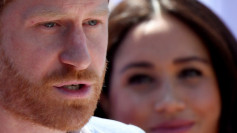Russia carried out its most extensive drone assault on Ukraine overnight into Sunday, launching 267 Iranian-made attack drones in a widespread offensive that killed at least three people and destroyed critical infrastructure. The attack came just a day before the third anniversary of Moscow's full-scale invasion, further intensifying the ongoing conflict.
Ukrainian President Volodymyr Zelenskyy called it "the largest attack since Iranian drones began hitting Ukrainian cities and villages." The Ukrainian air force reported that 138 drones were shot down over 13 regions, while an additional 119 disappeared from radars, likely due to electronic jamming. Three ballistic missiles were also launched, with damage reported in multiple areas.
In Kryvyi Rih, a city in central Ukraine, one person was killed in a missile strike, according to the local military administration. Zelenskyy said that over the past week, Russia has launched nearly 1,150 drones, more than 1,400 guided aerial bombs, and 35 missiles in sustained attacks.
The offensive comes at a time of shifting U.S. foreign policy under President Donald Trump, who has signaled a potential departure from previous American support for Ukraine. His administration has engaged in renewed discussions with Russian officials, and reports suggest Trump may seek a peace deal that could include concessions unfavorable to Kyiv.
Zelenskyy expressed concerns that a U.S.-brokered resolution without Ukraine's direct involvement could result in territorial losses and leave the country vulnerable to future Russian aggression. "We must do everything possible to bring a lasting and just peace to Ukraine," he said. "This is achievable through the unity of all partners-we need the strength of all of Europe, the strength of America, the strength of everyone who seeks lasting peace."
Trump has recently drawn criticism from Ukrainian officials after suggesting that Kyiv bore responsibility for the war. He also referred to Zelenskyy as a "dictator" for not holding elections, despite Ukrainian laws prohibiting them during martial law. The remarks have raised concerns among European leaders over the durability of U.S. support for Ukraine.
In response, French President Emmanuel Macron and U.K. Prime Minister Keir Starmer are scheduled to meet separately with Trump in Washington this week to urge continued assistance for Kyiv. Starmer spoke with Zelenskyy on Saturday, reaffirming Britain's "ironclad support" for Ukraine and stressing that any negotiations to end the war must include Kyiv.
Meanwhile, Russia appears to be strengthening diplomatic ties with the Trump administration. Deputy Foreign Minister Sergei Ryabkov confirmed on Saturday that preparations for a potential Trump-Putin meeting were underway. The White House has not yet commented on the matter.
In Moscow, President Vladimir Putin used the occasion of Russia's Defender of the Fatherland Day to praise Russian troops fighting in Ukraine. In a televised address, he stated that they were defending "their native land, the national interests, and the future of Russia." He pledged continued military support, vowing that Russia would strengthen its armed forces to ensure national security.






